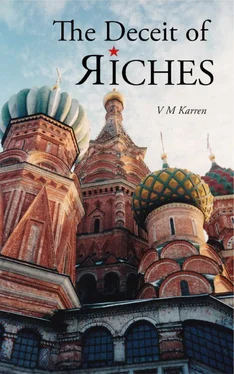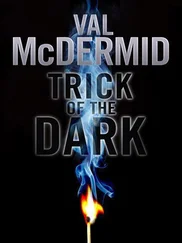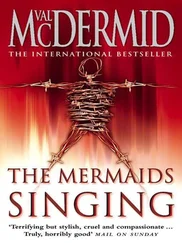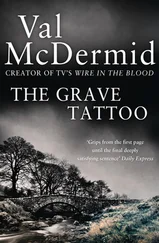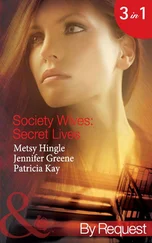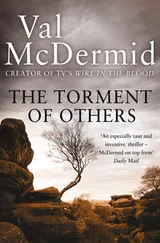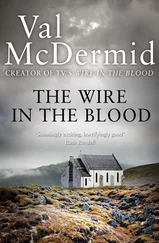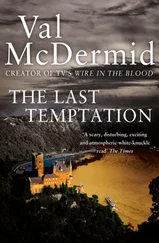“I heard that Bolshakov broadcast a very damning news report in late December. Vitaly from the dorms was telling me about it before I moved out. Wasn’t it about how the government ministers were giving away very valuable state assets, like oil fields to the criminal groups in Moscow and Siberia?” I prompted.
“Yes. It was a masterpiece. A wonderful piece of journalism. He proved everything with government documents and witnesses. There was no second guessing what he had compiled. How he got all his materials is a mystery, but we all know the real thing when we see it. Bolshakov really exposed a lot of people, in and out of the government who have become very rich by scamming the new programs for privatizing the country’s natural resources and factories,” she explained in increasing detail and anger.
“What are Bolshakov’s politics? Who is he trying to expose?” I asked, only having read a few of his articles to date.
“He is a communist. He was always against the corruption in the Communist Party and he wrote a lot during Perestroika that helped Gorbachev clean up the back handed deals within the Communist Party, you know the nepotism and people scratching each other’s backs, in general, the abuse of their office for personal gain,” Yulia explained further, “but ever since Yeltsin started giving away oil companies and selling the mines with precious metals for ten percent their value, Bolshakov has become even more important because he was the only one telling us the real story behind the headlines.”
“A communist who loves a free press… that’s ironic don’t you think?” I muttered to myself.
“Why not? A free press means that even a communist today can write what he chooses. It’s the principle, Peter. Besides all that, it’s possible to have an honest communist who is for treating the people fairly. It’s the corruption that he is fighting against.” Yulia stopped herself and corrected her description of Bolshakov to the past tense, “It’s the corruption and the criminals he was working against.”
“What effect do you think this will have on journalists going forward?” I asked with concern for her and her studies in particular.
“I really don’t know. Bolshakov had developed a cult of personality at our school. There are many of us who are very inspired by his use of the press to expose the scams and back-handed deals in Moscow. I really don’t know what my class is going to do with this news. We read his pieces every week and debated them,” her thoughts trailed off as she stared outside into the bright afternoon sunshine.
“What types of deals was he exposing recently? Who would have wanted him dead?” I queried further to keep her talking.
“He had just uncovered a huge deal between the government and a number of bankers, and of course behind the money in the bank were some very, very bad people who are career criminals since even before Gorbachev started his reform program. It turns out that the government has leased the rights to our most valuable natural resources for about ten percent their real value! For all the talk they do about market reforms, they certainly didn’t let the market work on these deals. It was all rigged. It was just a show for the public and the western newspapers. Somebody certainly got a very nice back scratch!” she exclaimed as her thoughts focused on the swindles the Bolshakov had exposed. “They call this type of deal a ‘shock reform’. Yes! it is a shock to us all that they are giving away our country!”
“Makes you wonder who really has the power in Moscow, doesn’t it?” I muttered again.
“Just as long as the old communists aren’t calling the shots, the western governments don’t care and they just keep supporting Yeltsin, even though they are making these types of corrupt and illegal deals,” Yulia said with some exasperation.
“Is Yeltsin in control, do you think? Or is he just a figurehead, the acceptable face to the world right now?” I asked with skepticism as I listened to Yulia explain the most recent events that we were not even yet in the archives I was searching in at the university.
“The public in Moscow love him. They voted for him again even after he blew up the parliament with his tanks. People in Moscow are very happy with the new freedoms they have in their personal lives, but they are looking only at the short-term effect. Yeltsin’s advisors are selling all of our futures away to the crime bosses. They will get richer and richer and keep all the money from the oil while we can’t get medicines here in the provinces,” she moaned.
“Don’t you think Bolshakov’s television exposé will help people see that? I heard it was very specific,” I questioned.
“Maybe. Only maybe! Russians only believe when they want to believe something, nothing can change their minds. If they believe in Yeltsin and Chubais then they’ll believe them while they are being buried alive that it is for their own good,” she was spitting fire now at this point. “They all need to wake up!”
“Yes, I did read some statement from Chubais that he thought that mafia money being used to buy legitimate businesses from the government was a good thing. He liked the idea of being able to tax their illegally earned money. Ridiculous!” I added, “They need to confiscate it and stop the joyriding, not legitimise their status and give them a seat at the table. Makes me wonder who is really being served here.”
“What, does Chubais think that they’ll just stop doing what they’re doing, earning lots and lots of money by exploiting and hurting other people because they are waiting to do an ‘honest days work’? He is crazy.” Yulia was pacing around the room now, “They’ll just keep doing what they’re doing but with more money and influence just to grind us down further as their slaves.”
“What can we do to fix this?” I asked seeing the downward spiral in front of me, opening up on the floor under the sofa ready to swallow us all up.
“What can we do to fix it? Ha ha ha. There is nothing that you or I, or my entire class of future journalists can do! They’ll just shoot us on Sunday evening after a family outing, or blow up the bus we ride to work every day. Peter, there is nothing we can do about it.” She looked at me as if I was a complete idiot, a naive American idiot.
“You can’t just let Bolshakov be buried and forget about what he’s done. You’ve got to fight on!” I said in my best inspirational voice.
“Peter, if you think it’s so horrible, you do something about it! As for me, I think I’m going to become an entertainment critic and write glowing reviews about this year’s upcoming Victory Day concerts in May and keep myself from getting shot. It’s not a time to go sticking your head up. if they’ll kill somebody as visible as Bolshkov, it means that they can and will kill anybody that they want to,” and with that, she refused to speak with me any further on the topic.
I was very saddened to hear and see how defeated Yulia was. The young idealist I knew had also been shot, it seemed, and killed next to the famous journalist that horrible Saturday night in Moscow. I didn’t press the matter with her any further and, sensing her wanting to be alone again, I excused myself and headed home before it got too dark on the street.
Outside on the square across the street from the Zarachnaya metro station, the weekend bazaar was just wrapping up with the setting sun. Merchants lugging their goods in huge plastic sacks were standing together at the bus stops to head home for the night. I climbed aboard for the short ride back to my apartment and quickly took a seat behind the driver.
As the bus pulled away from the curb a middle-aged woman began demanding something from me that I didn’t understand. Her stern approach led me to believe she was a transit controller who was asking to see my bus ticket.
Читать дальше
